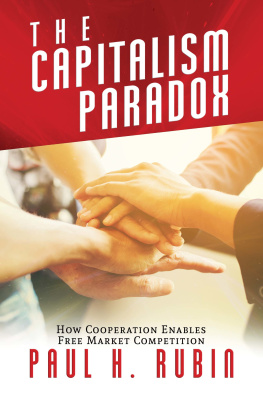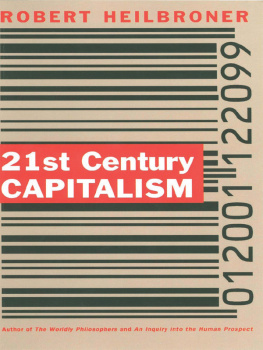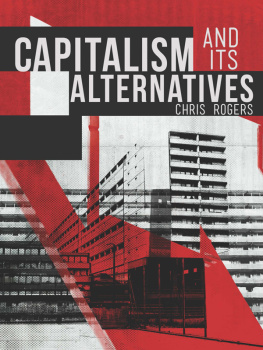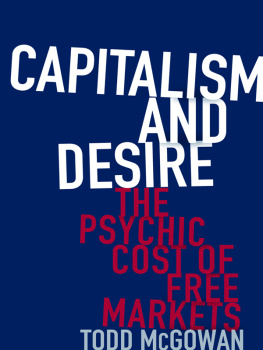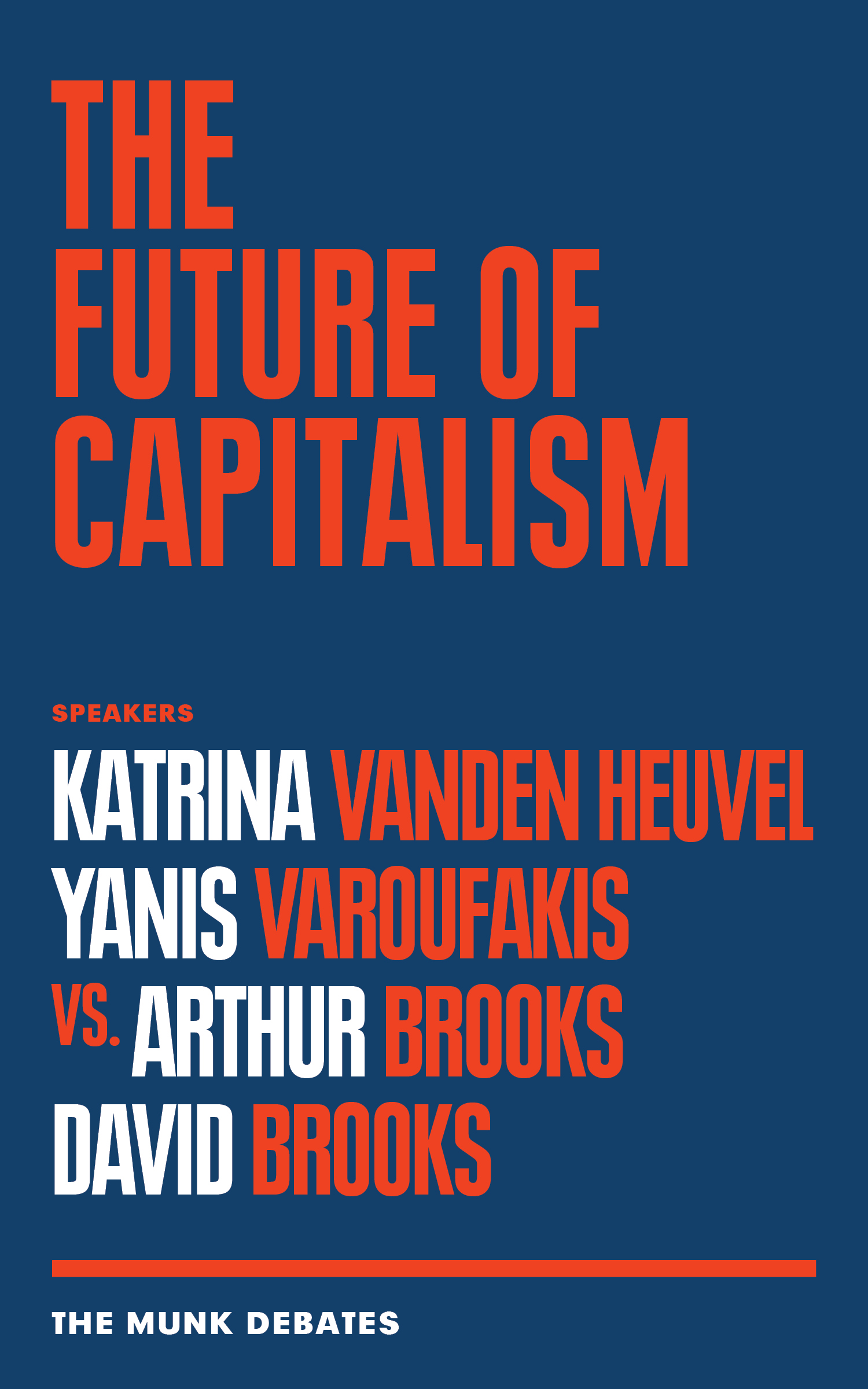
A Letter from Peter Munk
Since we started the Munk Debates, my wife, Melanie, and I have been deeply gratified at how quickly they have captured the publics imagination. From the time of our first event in May 2008, we have hosted what I believe are some of the most exciting public policy debates in Canada and internationally. Global in focus, the Munk Debates have tackled a range of issues, such as humanitarian intervention, the effectiveness of foreign aid, the threat of global warming, religions impact on geopolitics, the rise of China, and the decline of Europe. These compelling topics have served as intellectual and ethical grist for some of the worlds most important thinkers and doers, from Henry Kissinger to Tony Blair, Christopher Hitchens to Paul Krugman, Peter Mandelson to Fareed Zakaria.
The issues raised at the Munk Debates have not only fostered public awareness, but they have also helped many of us become more involved and, therefore, less intimidated by the concept of globalization. It is so easy to be inward-looking. It is so easy to be xenophobic. It is so easy to be nationalistic. It is hard to go into the unknown. Globalization, for many people, is an abstract concept at best. The purpose of this debate series is to help people feel more familiar with our fast-changing world and more comfortable participating in the universal dialogue about the issues and events that will shape our collective future.
I dont need to tell you that there are many, many burning issues. Global warming, the plight of extreme poverty, genocide, our shaky financial order: these are just a few of the critical issues that matter to people. And it seems to me, and to my foundation board members, that the quality of the public dialogue on these critical issues diminishes in direct proportion to the salience and number of these issues clamouring for our attention. By trying to highlight the most important issues at crucial moments in the global conversation, these debates not only profile the ideas and opinions of some of the worlds brightest thinkers, but they also crystallize public passion and knowledge, helping to tackle some of the challenges confronting humankind.
I have learned in life and Im sure many of you will share this view that challenges bring out the best in us. I hope youll agree that the participants in these debates challenge not only each other but also each of us to think clearly and logically about important problems facing our world.
Peter Munk (19272018)
Founder, Aurea Foundation
Toronto, Ontario
The Future of Capitalism
Katrina vanden Heuvel and Yanis Varoufakis
vs. Arthur Brooks and David Brooks
THE MUNK DEBATES
Edited by Rudyard Griffiths
Copyright 2019 Aurea Foundation
Katrina vanden Heuvel, Yanis Varoufakis, Arthur Brooks, and David Brooks in Conversation by Rudyard Griffiths. Copyright 2019 Aurea Foundation
Published in Canada in 2020 and the USA in 2020 by House of Anansi Press Inc.
www.houseofanansi.com
All rights reserved. No part of this publication may be reproduced or transmitted in any form or by any means, electronic or mechanical, including photocopying, recording, or any information storage and retrieval system, without permission in writing from the publisher.
Library and Archives Canada Cataloguing in Publication
Title: The future of capitalism : Vanden Heuvel and Varoufakis vs. Brooks and Brooks / edited by Rudyard Griffiths.
Other titles: Future of capitalism (Toronto, Ont.)
Names: Griffiths, Rudyard, editor. | Vanden Heuvel, Katrina, panelist. | Varoufakis, Yanis, panelist. | Brooks, Arthur C., 1964- panelist. | Brooks, David, 1961- panelist.
Series: Munk debates.
Description: Series statement: The Munk debates
Identifiers: Canadiana (print) 20190228458 | Canadiana (ebook) 20190228482 | ISBN 9781487007430 (softcover) | ISBN 9781487007447 (EPUB) | ISBN 9781487007454 (Kindle)
Subjects: LCSH: CapitalismForecasting.
Classification: LCC HB501 .F88 2020 | DDC 330.12/2dc23
Cover design: Alysia Shewchuk and Ricky Lima
Transcription: Transcript Heroes
We acknowledge for their financial support of our publishing program the Canada Council for the Arts, the Ontario Arts Council, and the Government of Canada.
CONTENTS
Pre-Debate Interviews with Moderator Rudyard Griffiths
Katrina vanden Heuvel in Conversation with Rudyard Griffiths
RUDYARD GRIFFITHS: Katrina, great to have you here in Toronto.
KATRINA VANDEN HEUVEL: Thank you, thank you.
RUDYARD GRIFFITHS: Youve had a storied career in publishing, in the world of ideas. Of all the many different topics that you could latch onto, why does this issue of capitalism interest you right now?
KATRINA VANDEN HEUVEL: I think its the recent pivot in the conversation. Particularly since the financial crisis of 2008, which changed so much of our lives, you can look out at the ideas that are now dominating our debate, and theyre bold and different, because people saw the structural failure of a system that wasnt working for them. And that was a moment where I think people woke up and said, We need to do something different; this is not working. Now, it might be capitalism 3.0, it might be social democracy, it might be democratic socialism. But what was on order as of 2008 is now ripped apart.
And what interests me is that even corporate chieftains, even big investors Ray Dalio of Bridgewater Associates, Marc Benioff of Salesforce, two hundred members of the Business Roundtable are saying that this kind of capitalism, predatory, extractive, call it what you will, is not working; we need to find different models. Now, some say this because theyre worried therell be pitchforks and protests in the streets and there are protests but others are thinking through how to build a more sustainable, more humane, more inclusive capitalism.
RUDYARD GRIFFITHS: Its been ten years since the financial crisis, and some might argue that over that decade, inequality has gotten worse, that features of capitalism that are making working families and working people struggle economically have only gotten more extreme. So, what happened? If you felt that the 2008 crisis marked a kind of wakeup call that the system was in need of reform, why didnt we see that reform after 2008?
KATRINA VANDEN HEUVEL: Reform in America takes time, it zigs and zags. I think 2016 in many ways was the first postfinancial crisis election, where you had Bernie Sanders like him or not speaking about issues of inequality that needed to be addressed. The big money that rigs the system, that erodes the power of working people, conversations on all of these issues were suddenly jump-started. So, in this upcoming 2020 election, were seeing a wealth-tax discussion. Were seeing discussions about billionaires, and not just punitive discussions, in my mind, but discussions like: How much power should the very rich have in a society? Does that power mean they write the rules? What do we do about big money? How does it corrupt the very best of American values?
So, its taken time to get here, but were having that discussion, and I think thats why this debate is so fraught and vital. Were at a moment where, once again, these issues are on the agenda. In the quick aftermath of 2008, they were kind of swept away, but now were confronting them again. Inequality has metastasized; there is no question that the very rich are accumulating the wealth in society that a just tax system needs to be thought through. And there are other measures being discussed and debated, ideas that the
Next page

